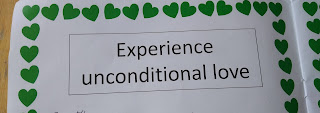Roger Scruton and the Conservative view of Education
"Society needs an educated elite" (Roger Scruton, 2019)
 |
| Roger Scruton (1944 - 2020) - philosopher, writer, conservative Portrait by Alan J Lawson |
The death last month of Roger Scruton prompted a new wave of reflection on his views on everything from islamophobia to fox-hunting, aesthetics to nationalism. For me he is a particularly useful figure in deconstructing the Conservative view of education. As well as being a nuanced and articulate writer, he is also refreshingly honest, in a way that reveals some elements of the tory education policy for what they are, rather than the dishonest and incoherent ideology of people like Michael Gove, Toby Young and Mark Lehain. Hence his piece for the TES in March 2019, is well worth critiquing.
 |
| The Blue Boy by Thomas Gainsbourgh |
 |
| Poster from the 1968 Paris Uprising |
For Roger Scruton, it was a mistake to ever think that education should be child-centered. The purpose of education, in his mind, should never be to lift children up into a world they can enjoy and be a part of, per se, but rather to pass the batons of knowledge, and appreciation of beauty, into their waiting hands, if indeed waiting they are. If they are not prepared to gratefully accept the gifts that are passed down them, then they are not deserving of his efforts to do so. What's more, they must enter into this deal of their own volition. "Conscripts are a total waste of time." The precise age at which children can be expected to take responsibility for taking such a decision he does not specify. And, fortunately for him, the problem of what to do with anyone who does not make the right choice, need not be his concern.
Scruton openly and honestly accepts the unfair consequences of having independent schools. “The education provided by such schools is not merely a privilege, but one that disadvantages those who do not possess it. It ensures that pupils leaving independent schools confront opportunities that are open to them, but not to the remainder.” In the Goveian reforms of the last decade, this fact has always been glossed over, or buried in the vacuity of their ‘all schools will improve’ rhetoric. Obviously, concedes Scruton, the gap between the haves and the have nots will widen in such a two-tier system. And yes, a lot of the time that won’t be fair.
But for Scruton, this is simply the price we must pay for preserving what is great and good about our country. “Society needs an educated elite,” he argues. I said that I find him a useful figure in deconstructing conservative views on education, and this is why. No-one in politics would be willing to say anything so unpalatable to the electorate as this. Any politician would recognise that this sounds very much like society also needs to keep a ‘rump’ of the public uneducated for society to run with maximum efficiency. They reach for language that instead paints inequality as a sad inevitability, but one that can nevertheless be addressed through conservative policy. And yet this idea of Scruton’s, that inequality of resources, of opportunity, is not only an acceptable inevitability, but that it is actually an advantageous necessity, runs unspoken behind a lot of Tory rhetoric. It must do, otherwise they would not be so ready to embrace policies that increase inequality, dismissing those that might actually reduce it.
 |
| 'Shah Alam Conveying the Grant of the Diwani to Lord Clive' by Benjamin West |
No, the existence of an educated ‘elite’ has apparently “proved decisive for our national survival”. They have been responsible for all our successes as a nation. They are what is needed to ensure that the ‘beauty’ that he reveres is created, preserved and handed down. They are what is needed to preserve our economic achievements, to achieve our military victories. They are needed to ‘see us through the bad times’. And here we come to what I think the most telling line of the whole TES piece, where he explains that the subjects studied by the educated elite - ancient history and the classics - “turned out to be exactly what was needed in the task of governing an empire”.
An empire can only be governed if you have a population who are happy to ‘know their place’. To not act like spoilt brats and try to bring the whole thing down. Whether or not the colonised have to endure their own ‘bad times’ in the act of being governed by the educated elite of Britain does not seem to bother Scruton much. There is a natural hierarchy in society, and that is that. Let it alone, and everything will be fine, as long as you don’t look too hard at the ones for whom it is patently not.
 |
| 'The Blue Boy after Gainsbourgh I' by Jake Wood-Evans |



Comments
Post a Comment